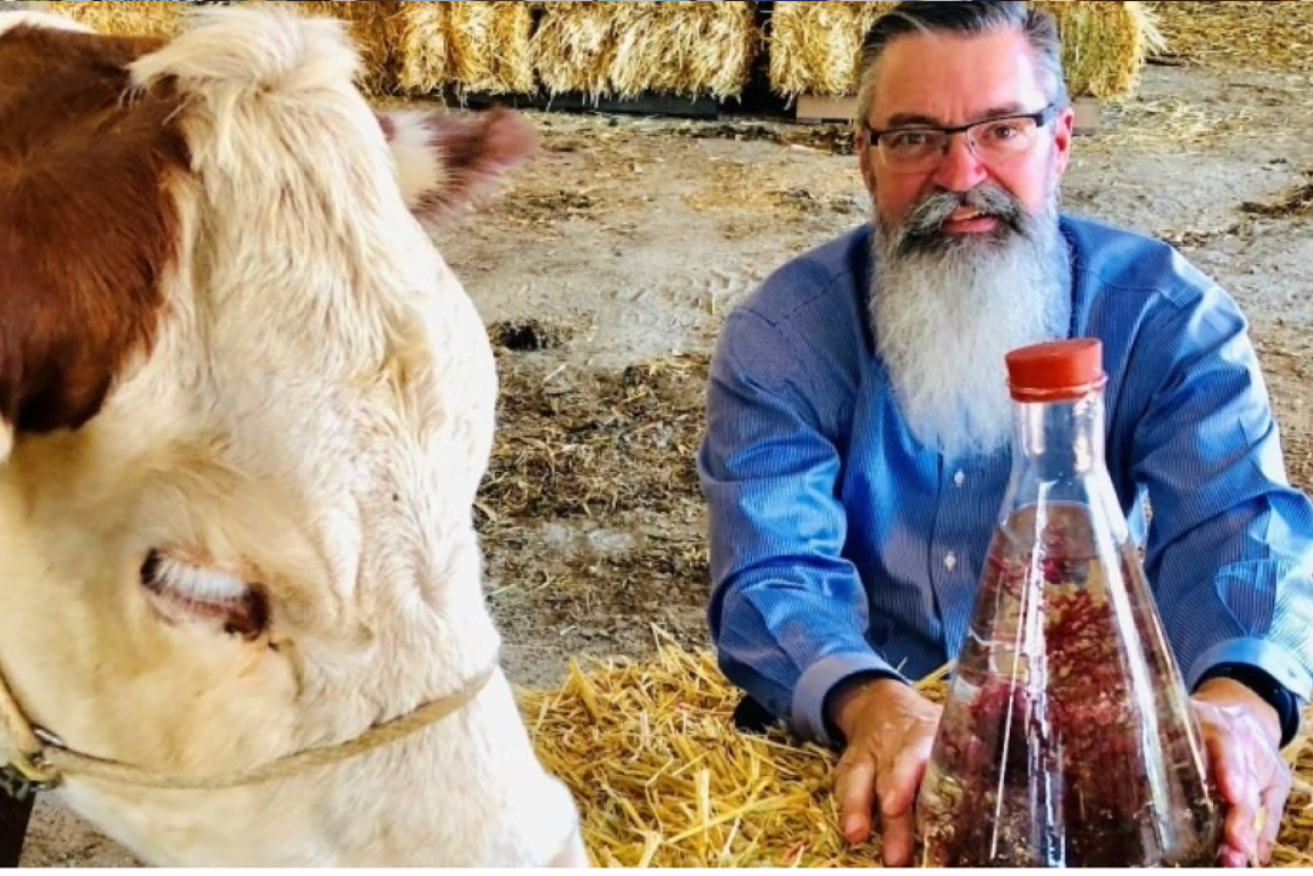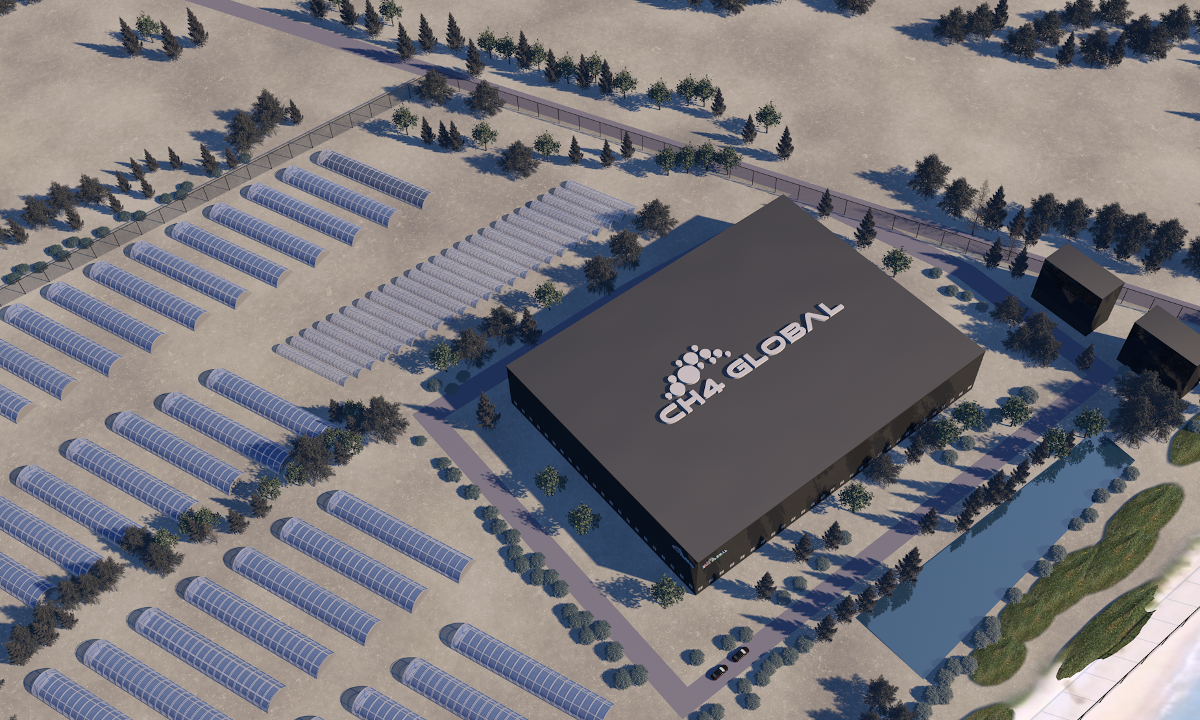More millions for SA methane-busting mission
Another $45 million has been raised for a Global EcoPark facility planned for South Australia’s Eyre Peninsula, where seaweed will be processed to feed cattle in a bid to reduce methane emissions.


CH4 Global co-founder Steve Meller with the seaweed variety aimed at slashing cattle methane emissions. Photo supplied
Announced today, CH4 Global’s ambitions have been given a shot in the arm after the firm secured funds from venture capital firms DCVC, DCVC Bio and Cleveland Avenue.
With the extra $45 million, CH4 has now raised $73 million to-date to build its Global EcoPark at Louth Bay, near Port Lincoln.
That facility will grow and process enough seaweed to feed 30,000 cattle per day in Australia and overseas. The type of seaweed, Asparagopis, is a red variant native to South Australia and has been found to drastically reduce methane emissions from cows and sheep by up to 90 per cent according to CH4.

A render of CH4 Global’s Louth Bay seaweed processing facility. Image supplied
The Adelaide and Nevada-based company says the 1.5 billion cows on the planet are the single largest source of methane globally and produce 12 billion tonnes per year – larger than the output from the US, the EU and India combined.
The company hopes its development at Louth Bay will position the company for expansion in key markets, with similar projects underway in New Zealand.
“We are receiving massive interest from governments, food producers and farmers of all sizes, fuelling our sense of urgency that we must act now to avoid a climate tipping point,” CH4 co-founder and CEO Steve Meller said.
“The pressure is on with new regulations and the desire to produce at a measurably lower impact.
“What we’ve developed at CH4 Global is what we call a CH4 Global EcoPark, which enables low-cost growth and processing of Asparagopsis.”
The co-founder added that CH4’s unique feed product – Methane Tamer – was formulated to meet the specific needs of beef and dairy cattle.
“CH4’s secret sauce is its product, plain and simple: the feed additive it has expertly formulated stands apart from other seaweed-based offerings,” said DCVC Bio managing partner John Hamer, one of the Series B investors who is also a member of the CH4 board of directors.
“DCVC Bio is thrilled to back Steve and his exceptional team: they are ready to scale up a critical solution to climate change.”
DCVC co-founder and managing partner Zachary Bogue said CH4 was “exactly the kind of deep tech company the world urgently needs”.
“Their natural and proprietary solution to the vexing global problem of methane from cattle can have a material environmental impact quickly and at scale,” he said.
Speaking to InDaily earlier this month, CH4 Global external relations manager for Australia and New Zealand Adam Main said Louth Bay was selected from a handful of proposed locations because the state had “everything we need”.
“One of the things that South Australia has a competitive advantage in is a very strong aquaculture and regulatory ecosystem,” he said.
“More importantly, it has both species of Asparagopsis on its doorstep.
“We’ve also got a very well-established aquaculture industry which is not a bad thing when starting up new industry in this space.”




